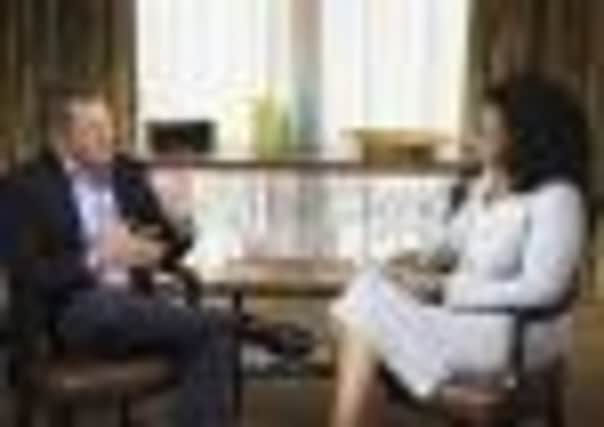Armstrong confession ‘is not enough’ says Tour director


The disgraced American cyclist finally confessed in a television interview to using drugs during all seven of his Tour de France wins.
The confession followed a United States Anti-Doping Agency (Usada) investigation which implicated Armstrong as a central figure in what it called “the most sophisticated, professionalised and successful doping programme that sport has ever seen”.
Advertisement
Hide AdAdvertisement
Hide AdSpeaking yesterday morning, Mr Prudhomme said that the confession on the Oprah Winfrey show did not go as far as he had hoped, with the depths of the deceit still needing to be known.


“I prefer to be here in Yorkshire talking about Yorkshire and the future or cycling, rather than the lies of the past,” said the Frenchman, who was in Leeds to mark the announcement of the routes for the 2014 Grand Départ.
“Six months ago nobody could imagine he [Armstrong] would say ‘I dope’, so it’s a big story.
“But it [the confession] is not enough. In the Usada report they said there was a system.
Advertisement
Hide AdAdvertisement
Hide Ad“We have to understand the system in order for it to be impossible for there to be the same systems in the future.
“The photography of Armstrong’s cycling is a photography of the past. Things have already changed in the last few years.”
Usada has called on Armstrong to admit to the full extent of his use of performance-enhancing drugs under oath.
Following the broadcast of the interview, Usada chief executive Travis Tygart said in a statement: “Tonight, Lance Armstrong finally acknowledged that his cycling career was built on a powerful combination of doping and deceit.
Advertisement
Hide AdAdvertisement
Hide Ad“His admission that he doped throughout his career is a small step in the right direction.
“But if he is sincere in his desire to correct his past mistakes, he will testify under oath about the full extent of his doping activities.”
Meanwhile, World Anti-Doping Agency chief executive John Fahey insists chemical evidence shows Armstrong also doped during his comeback years – in 2009 and 2010 – despite the Texan’s claims in the interview to the contrary.
“The evidence from Usada is that Armstrong’s blood tests show variations in his blood that show with absolute certainty he was doping after 2005,” said Mr Fahey.
“Believe Usada or believe Armstrong? I know who to believe.
“This bloke is a cheat and did my view of him change after watching the interview? No.”